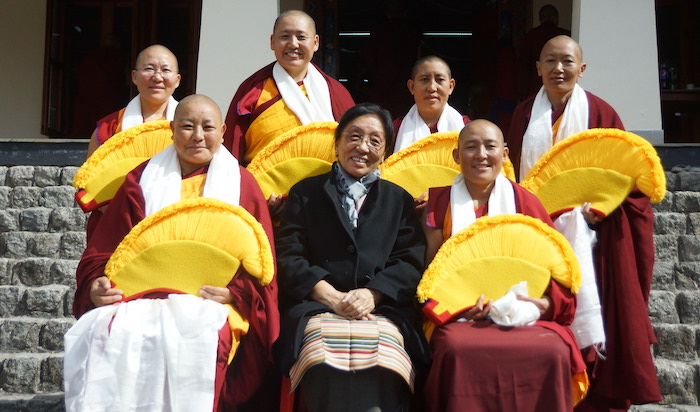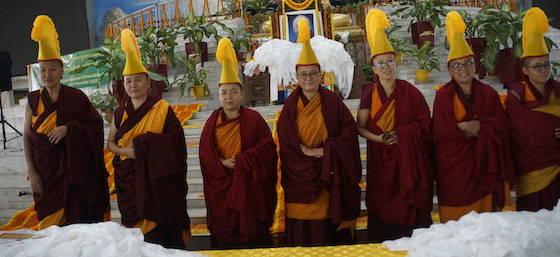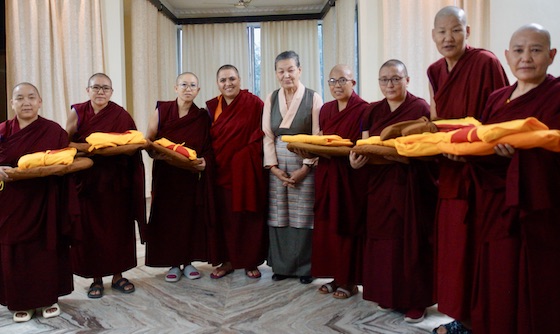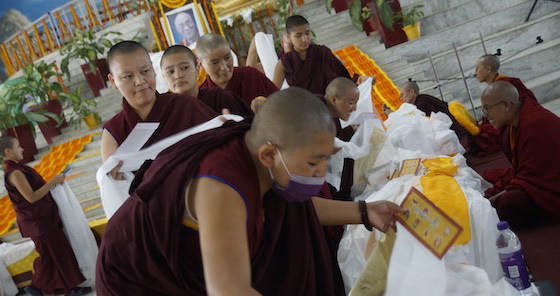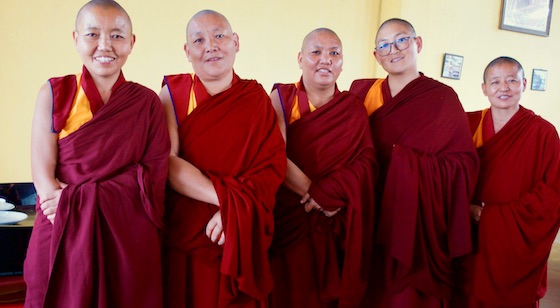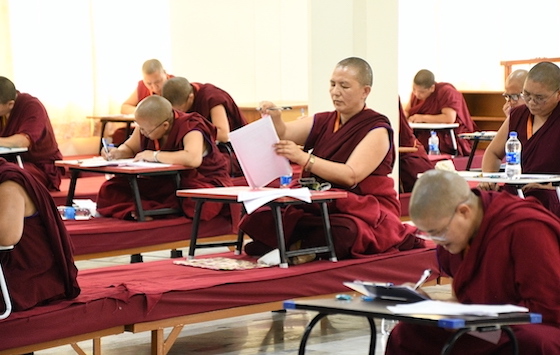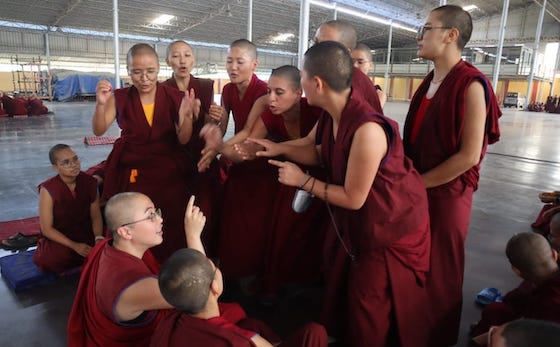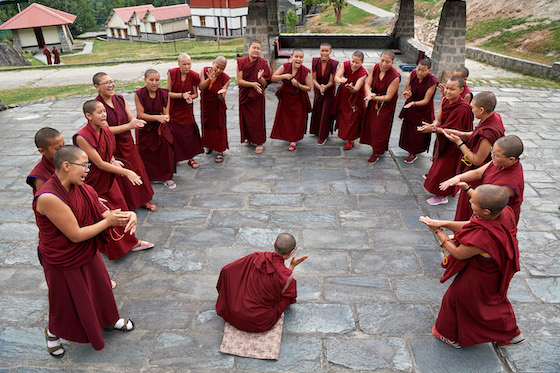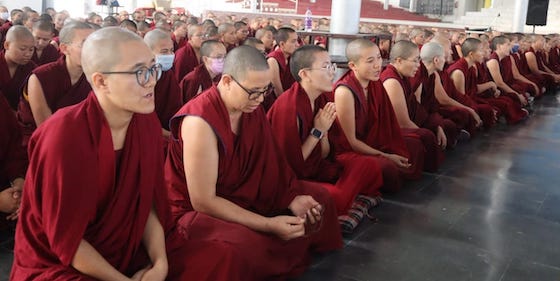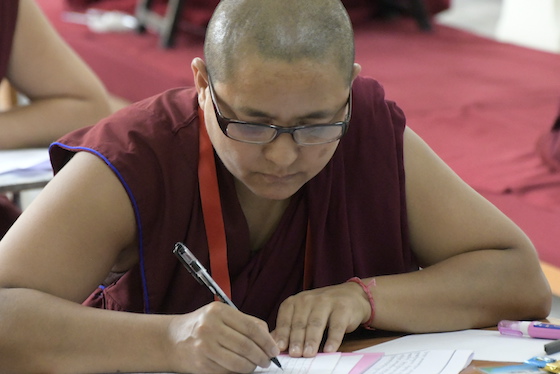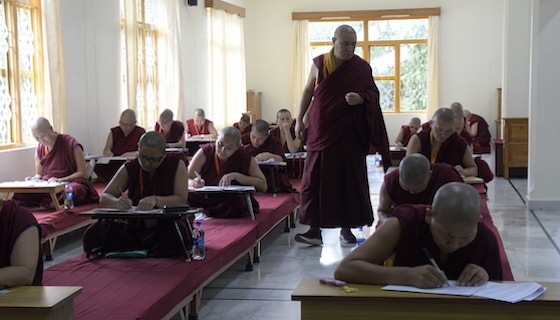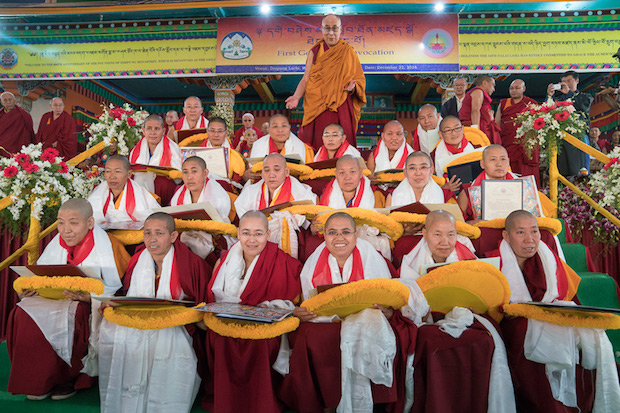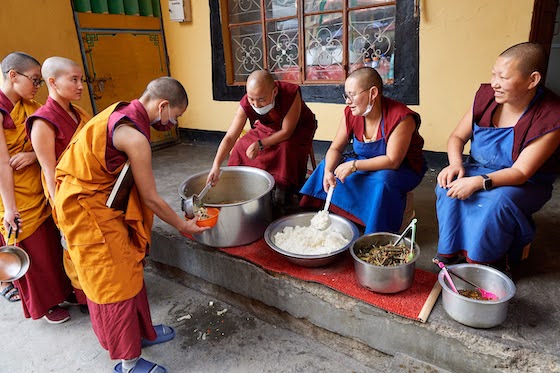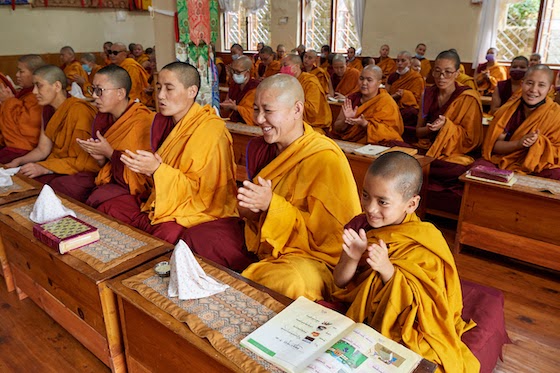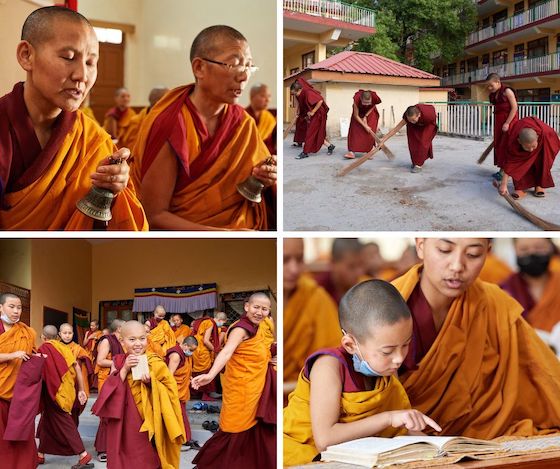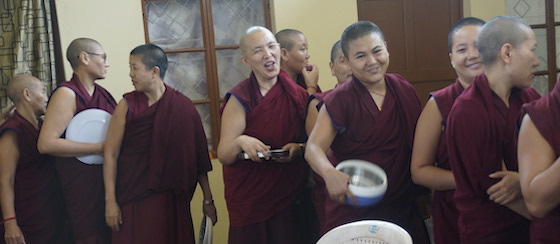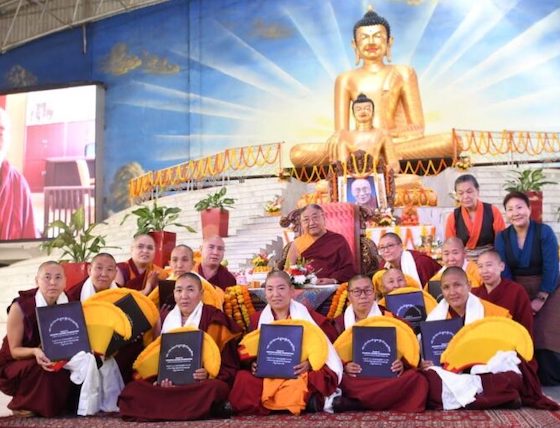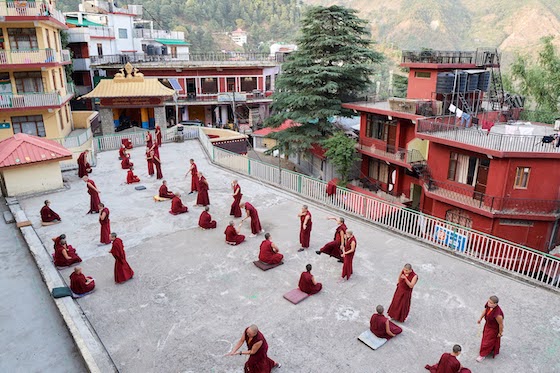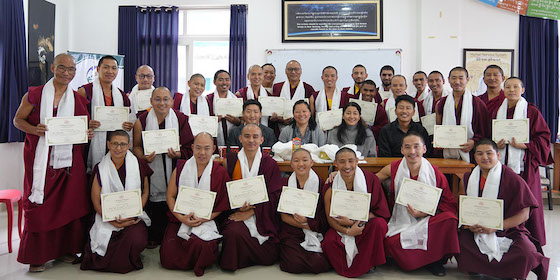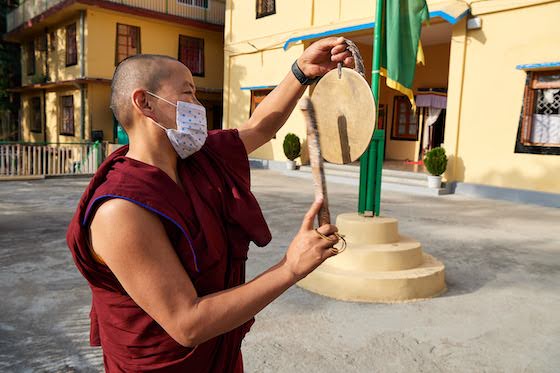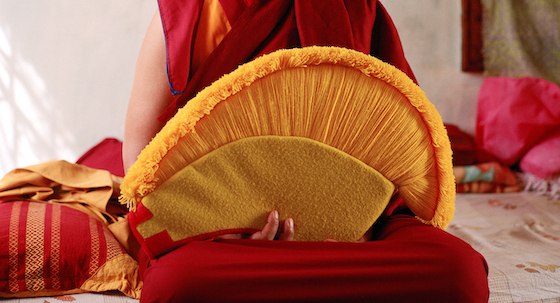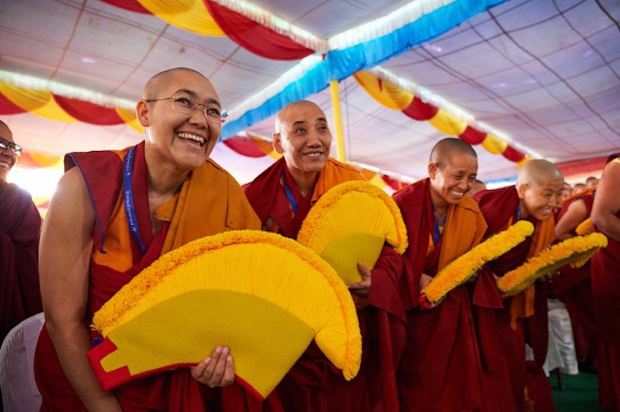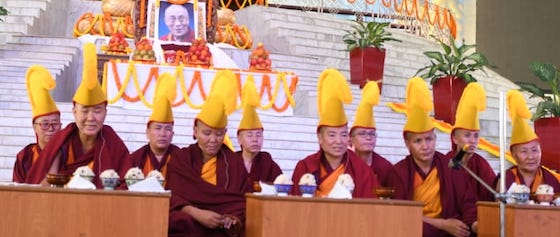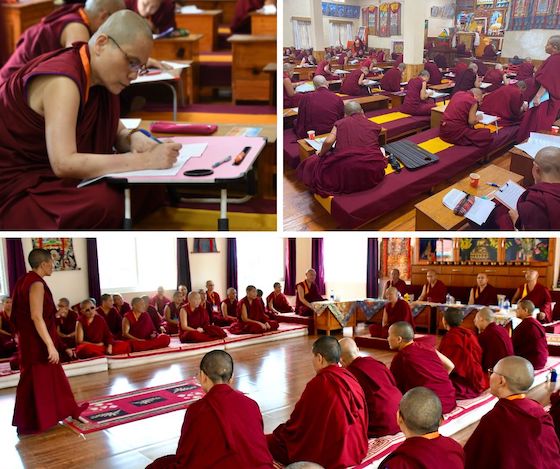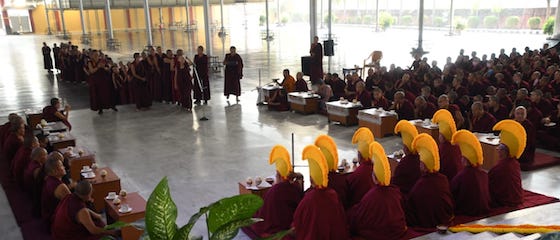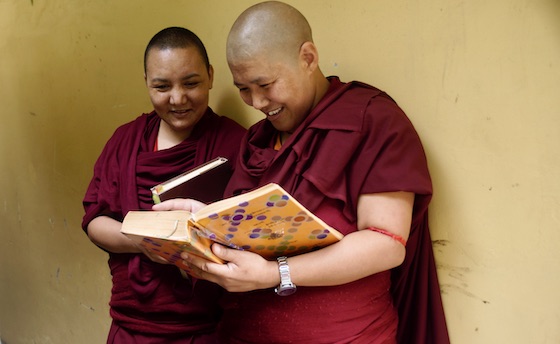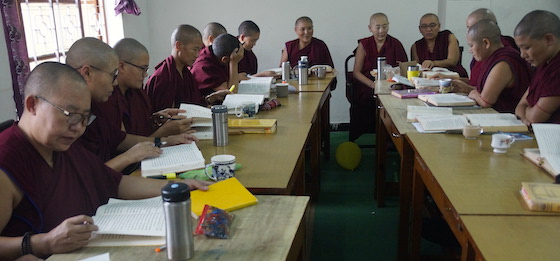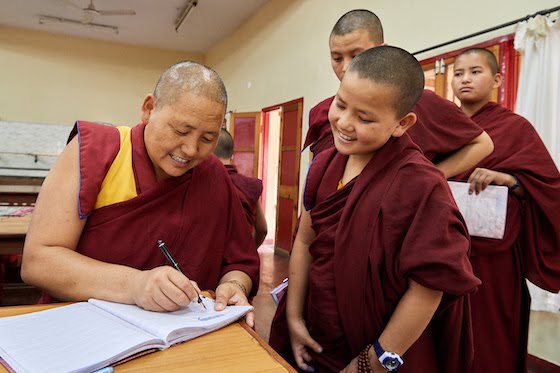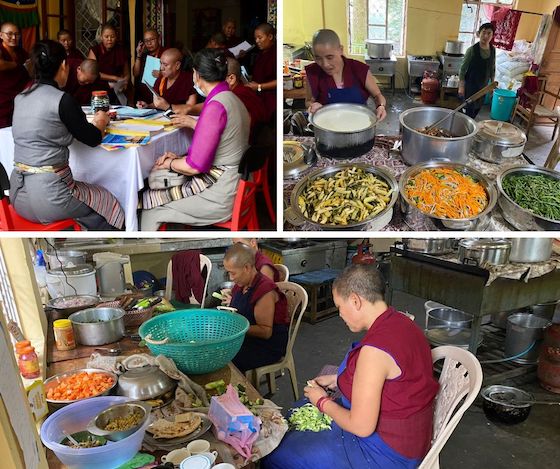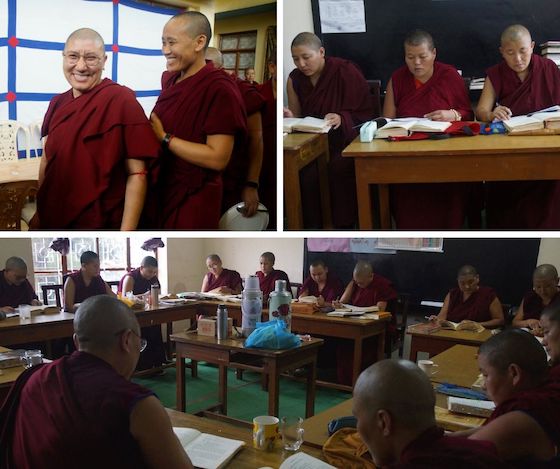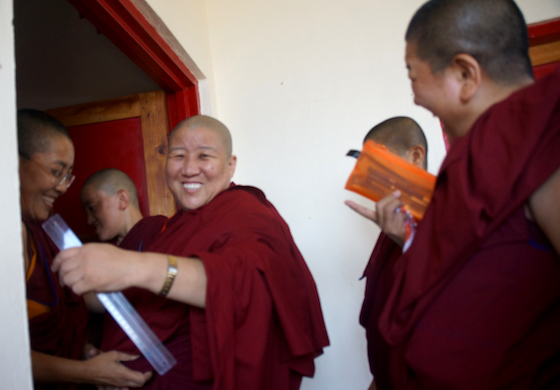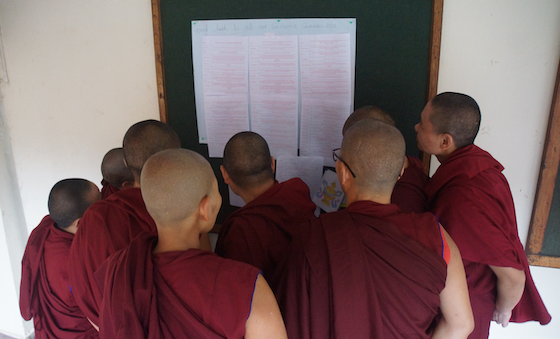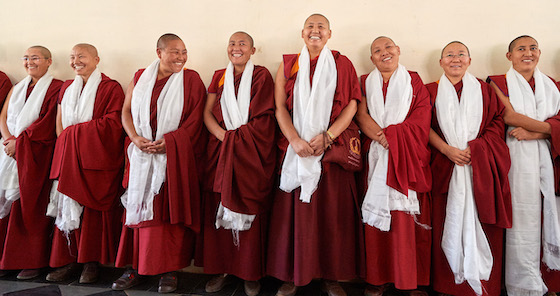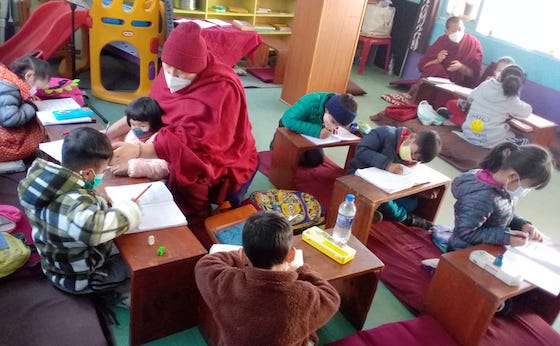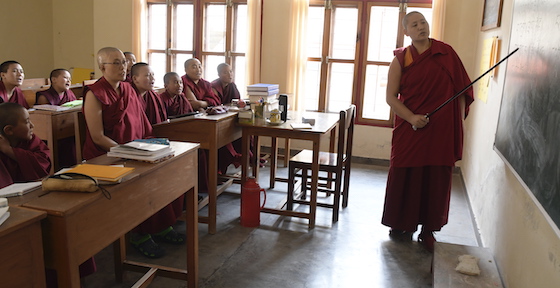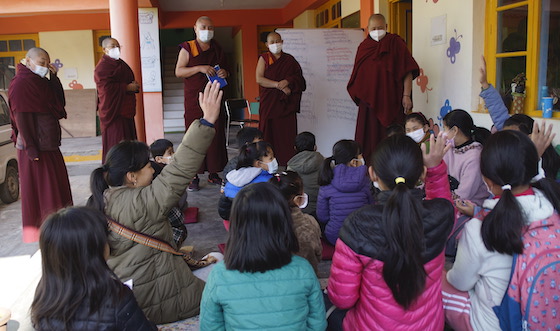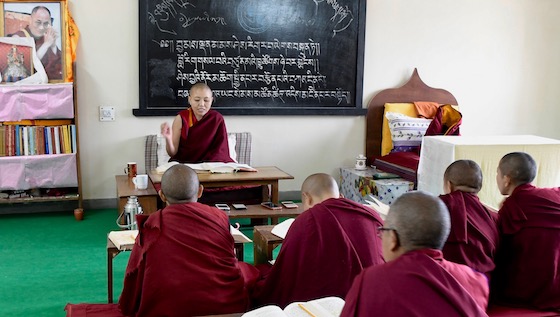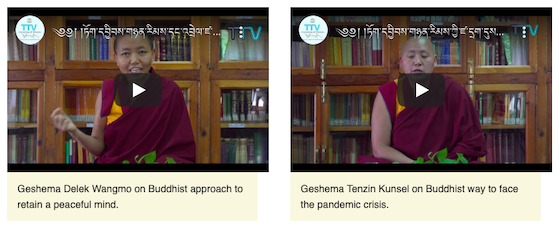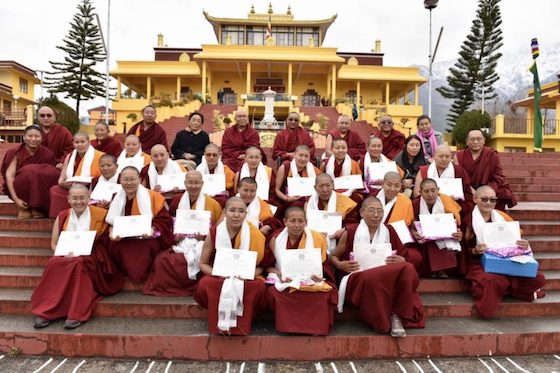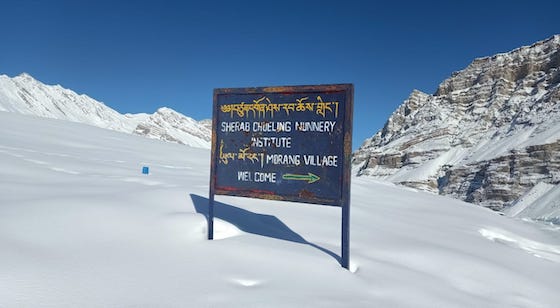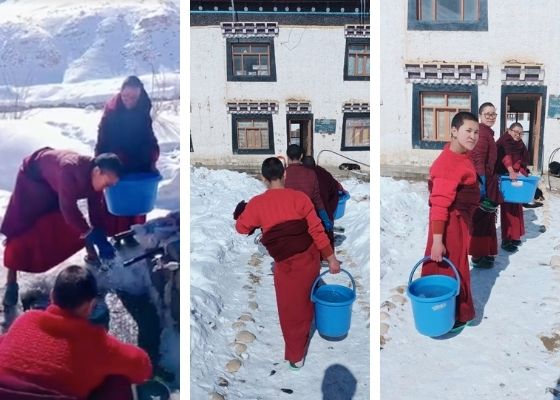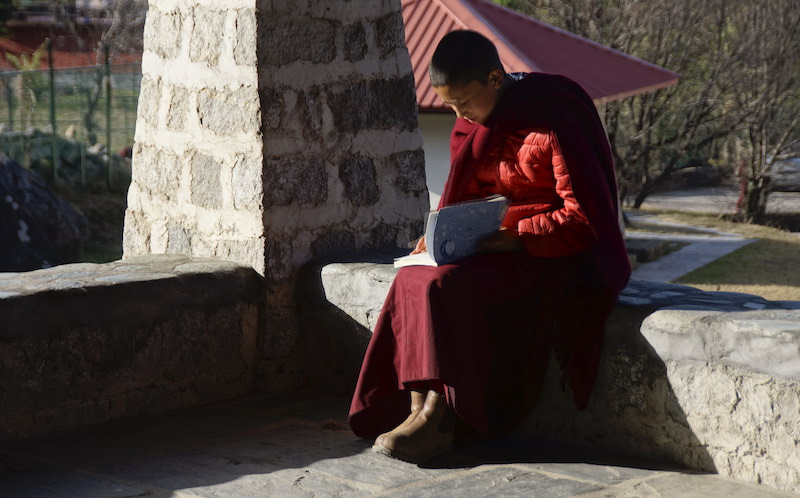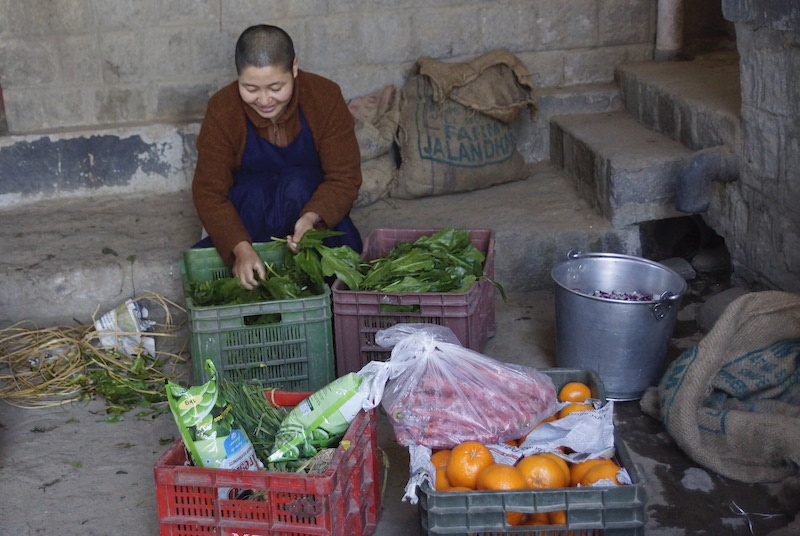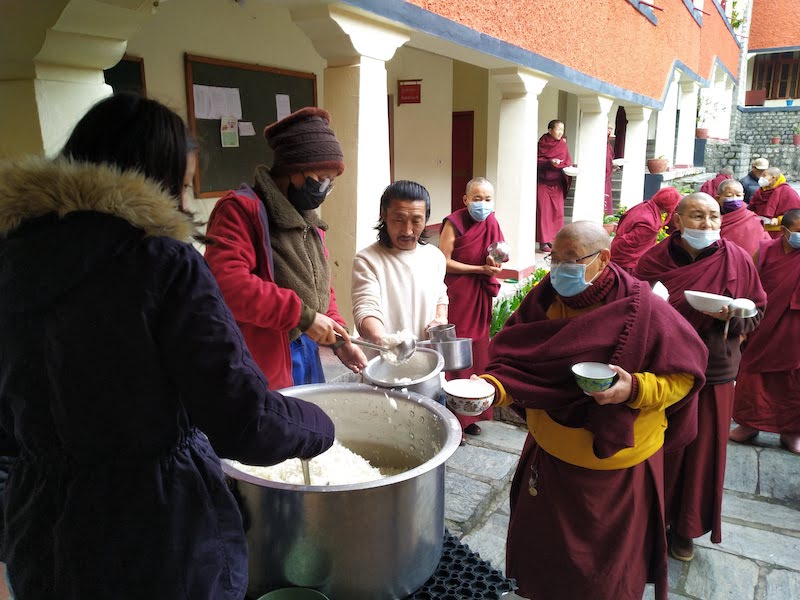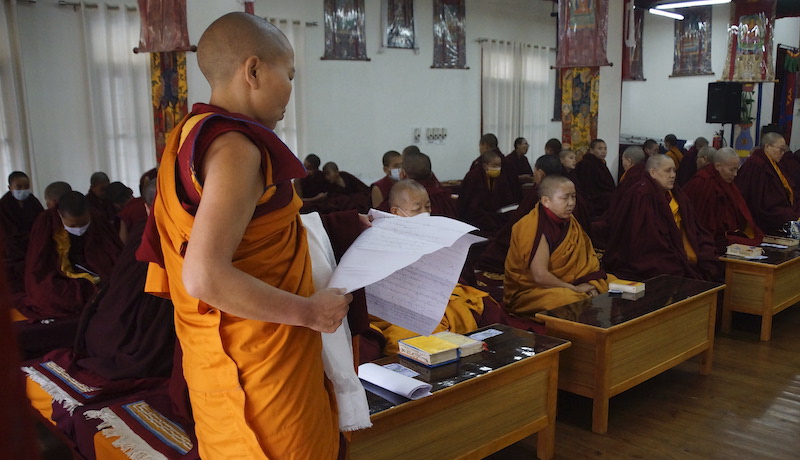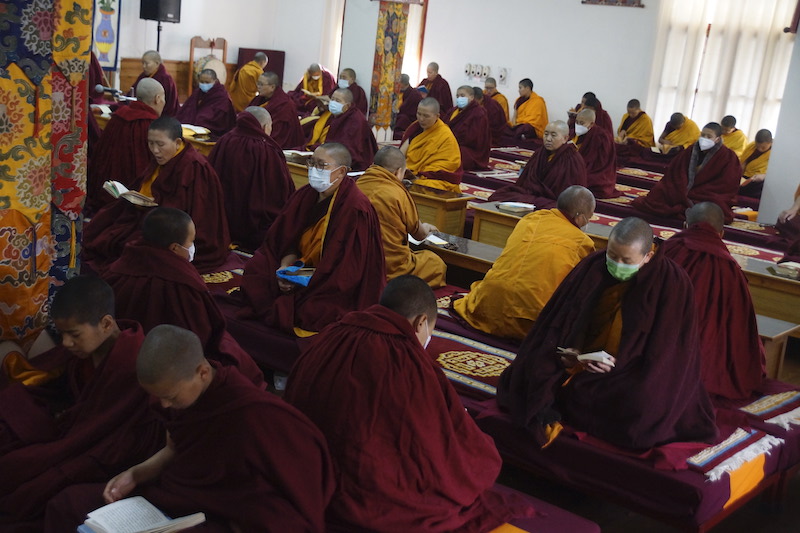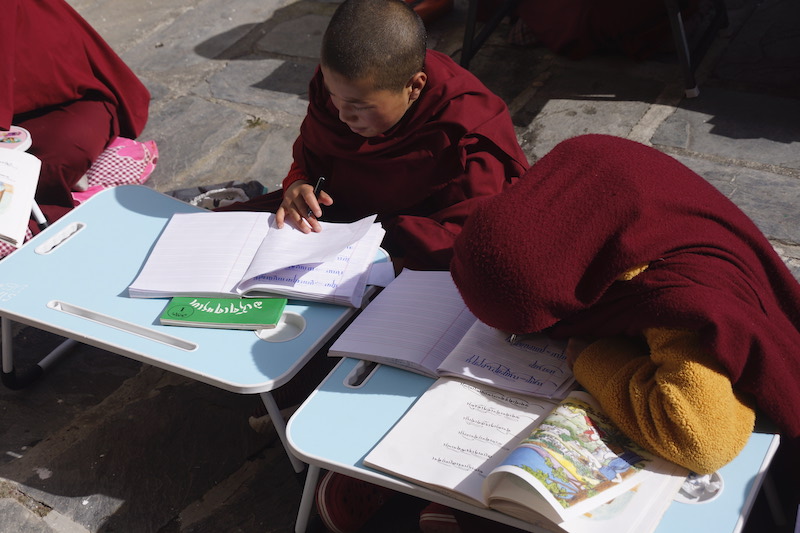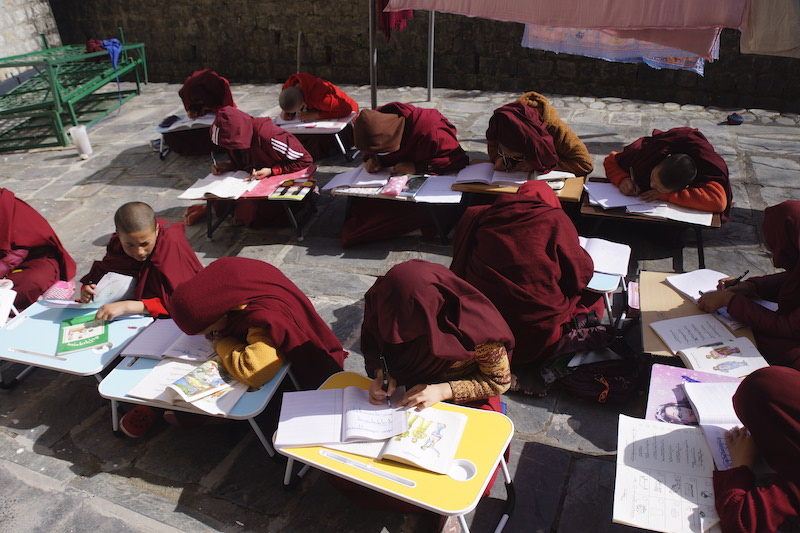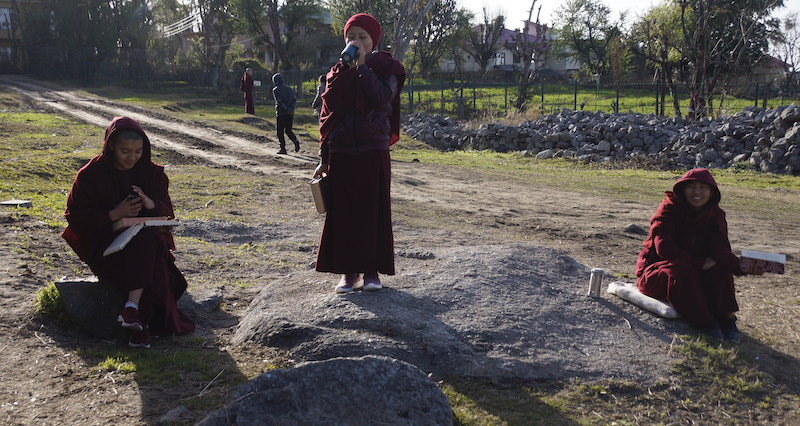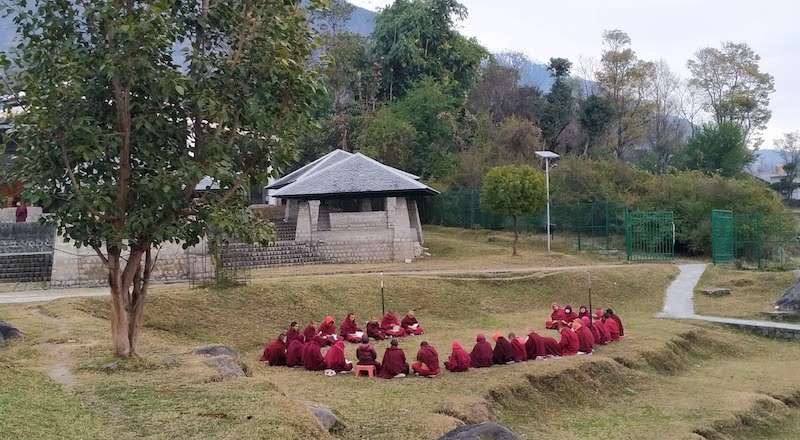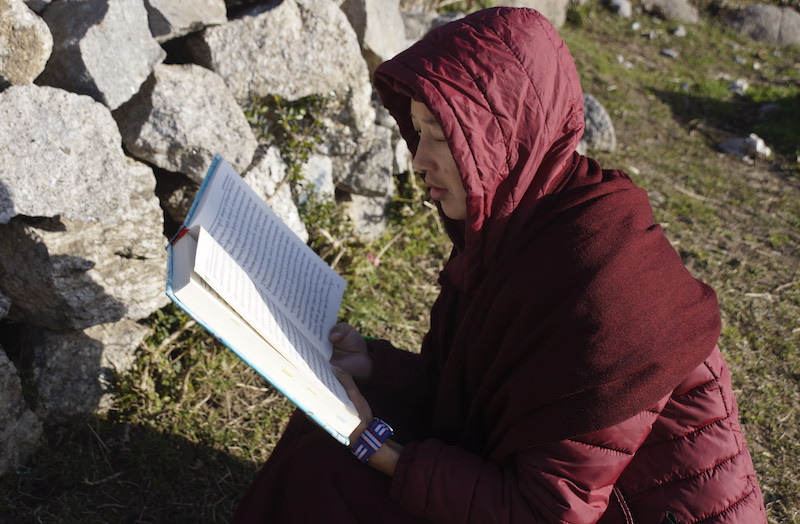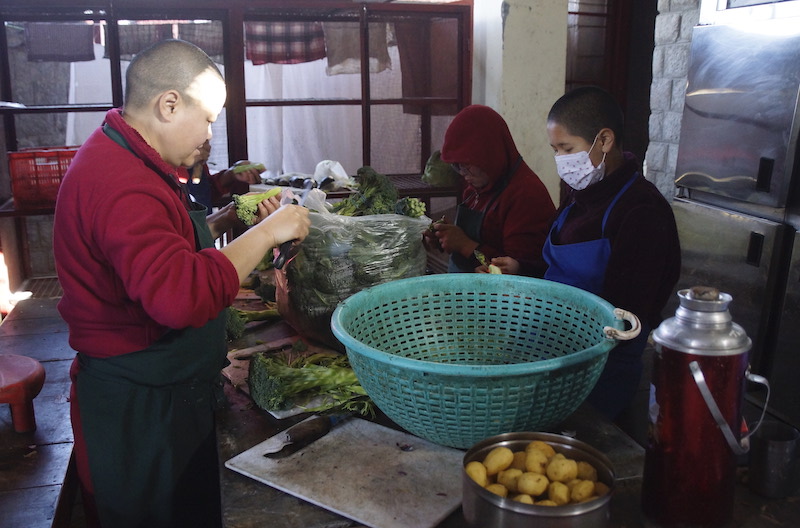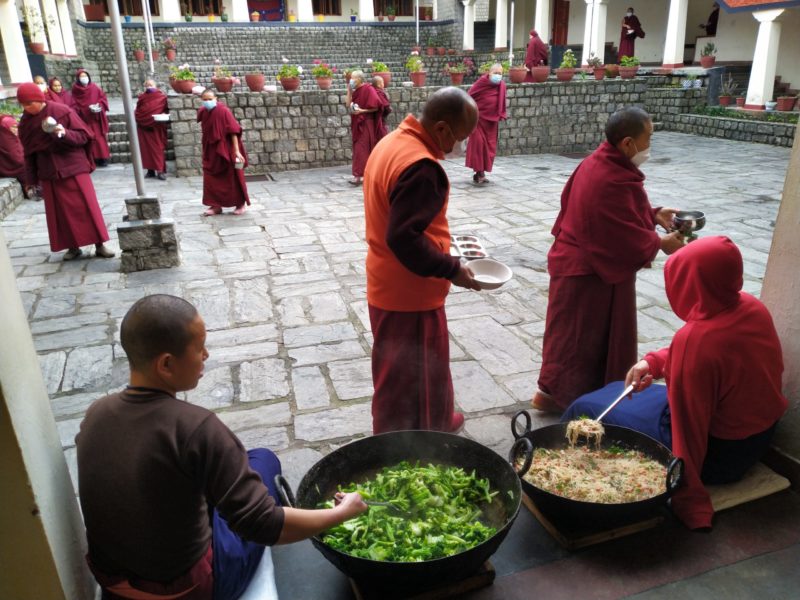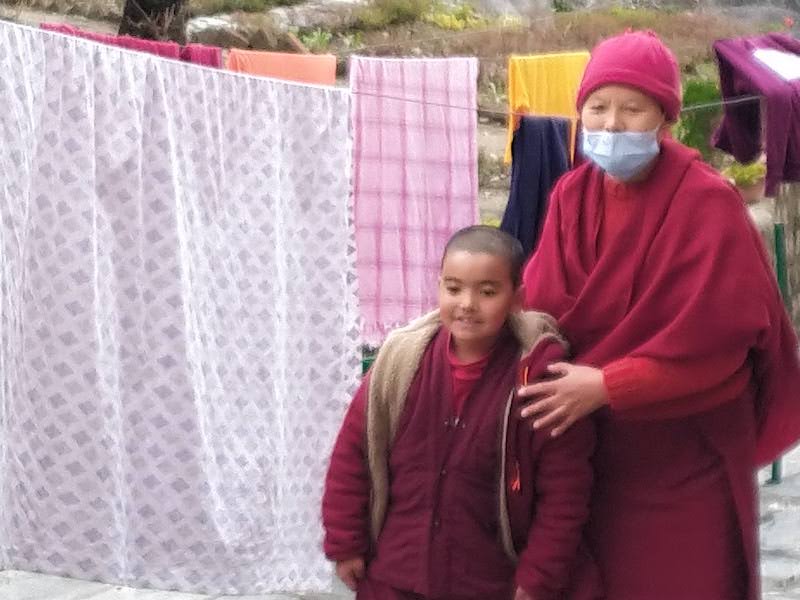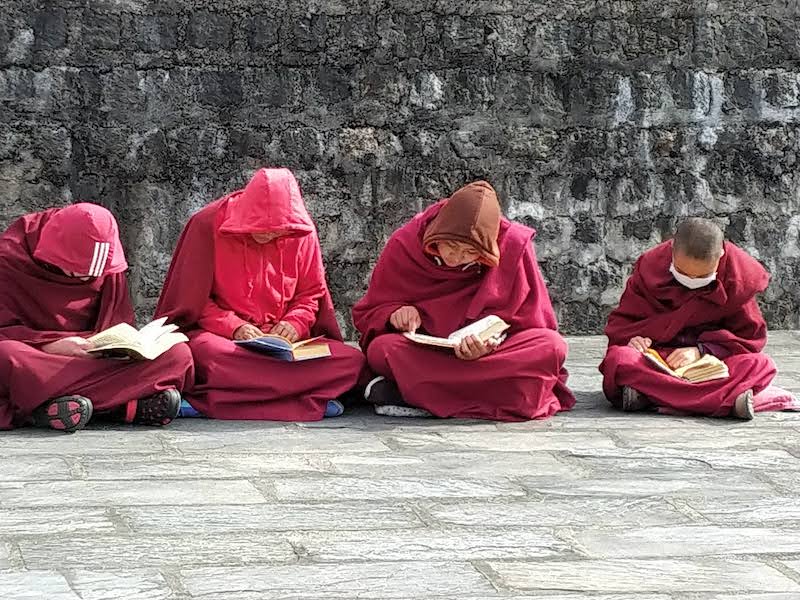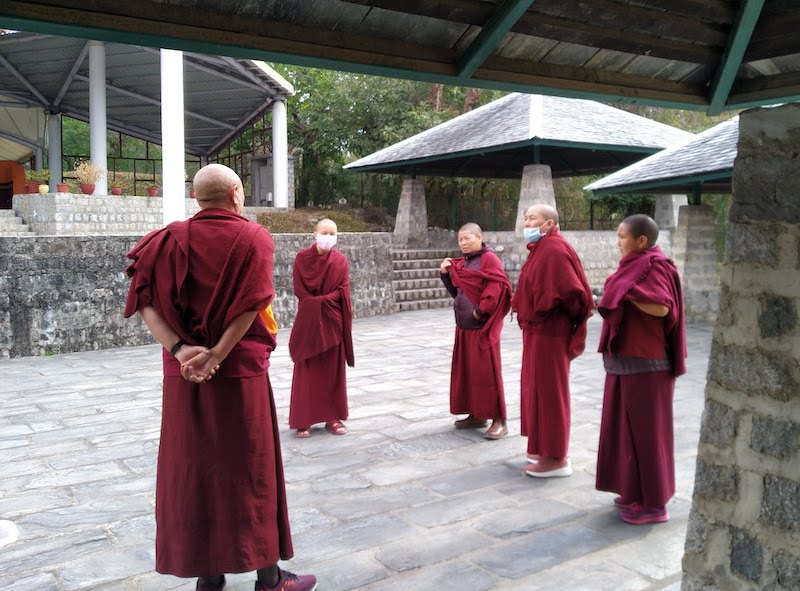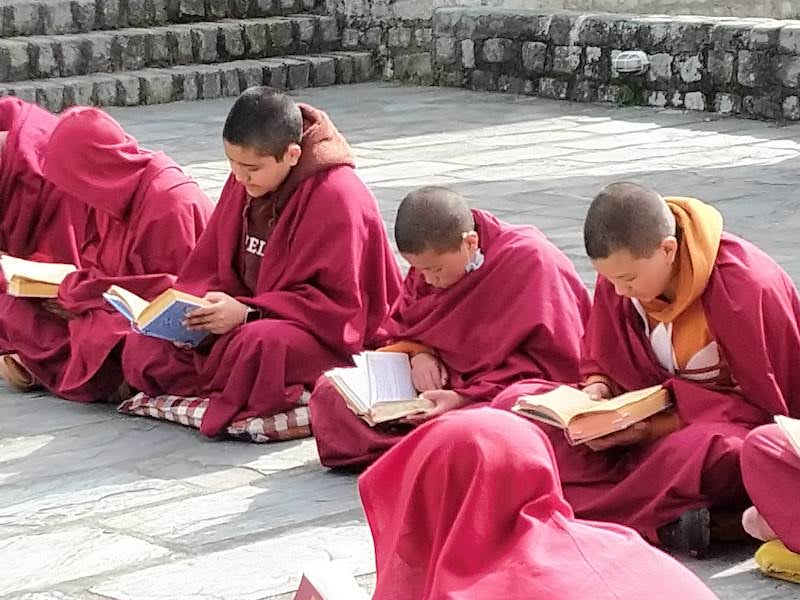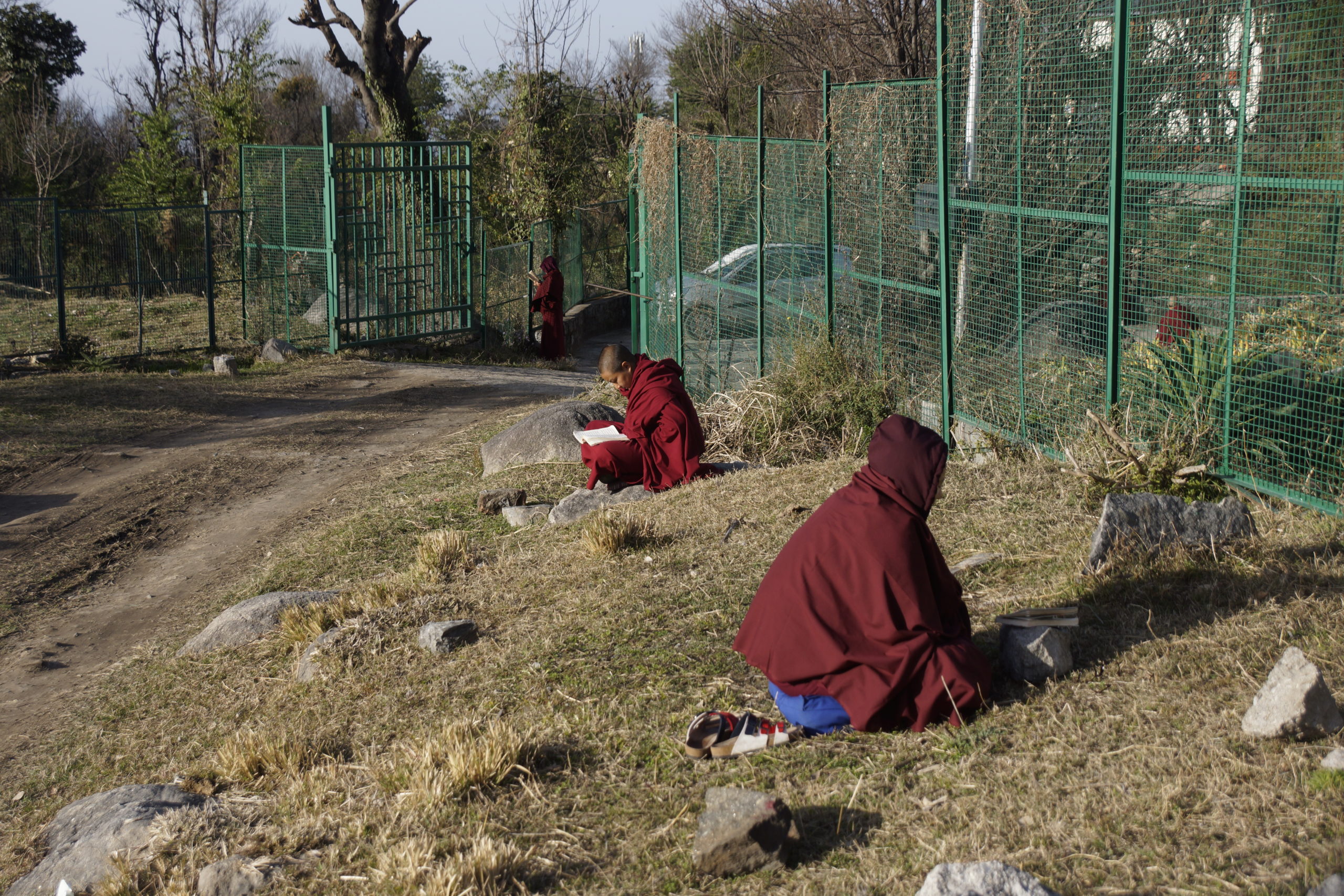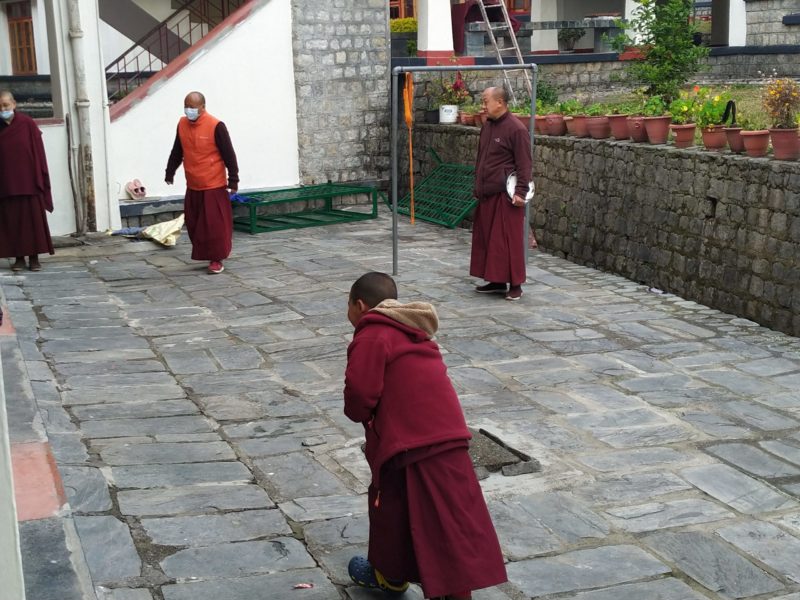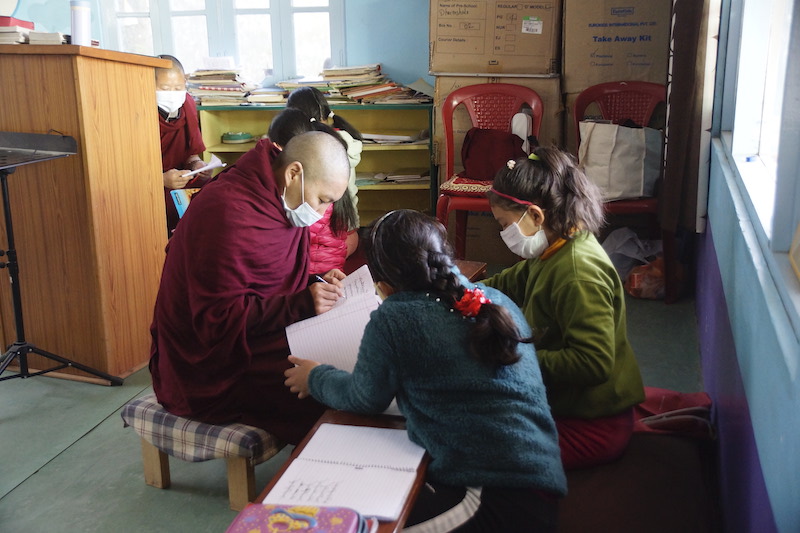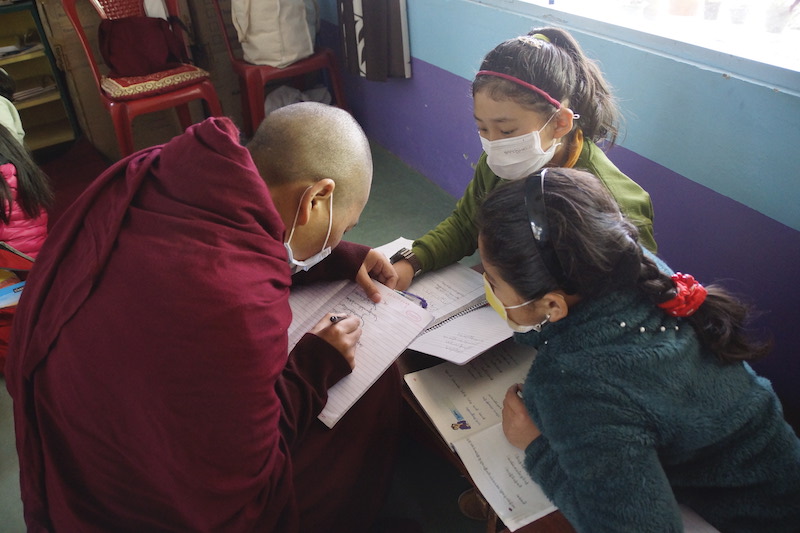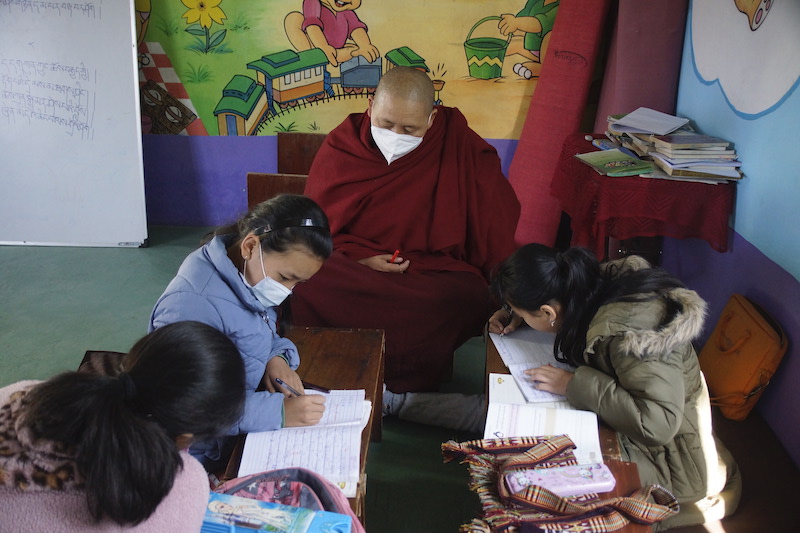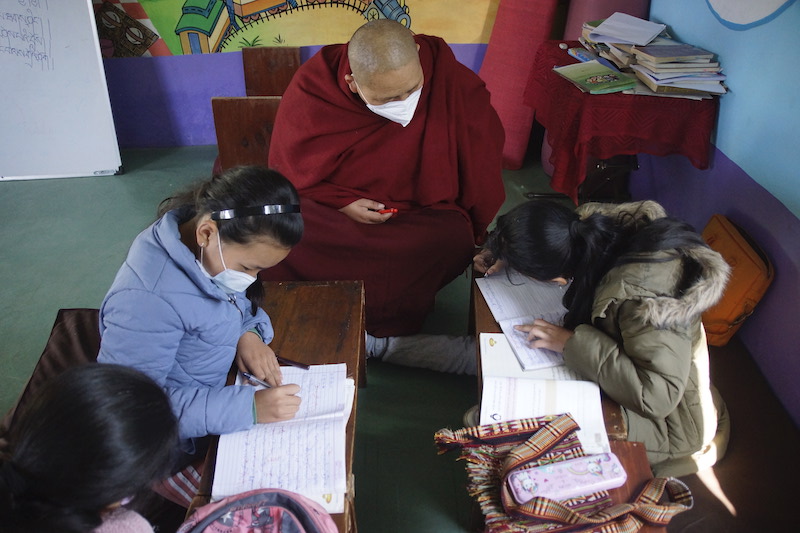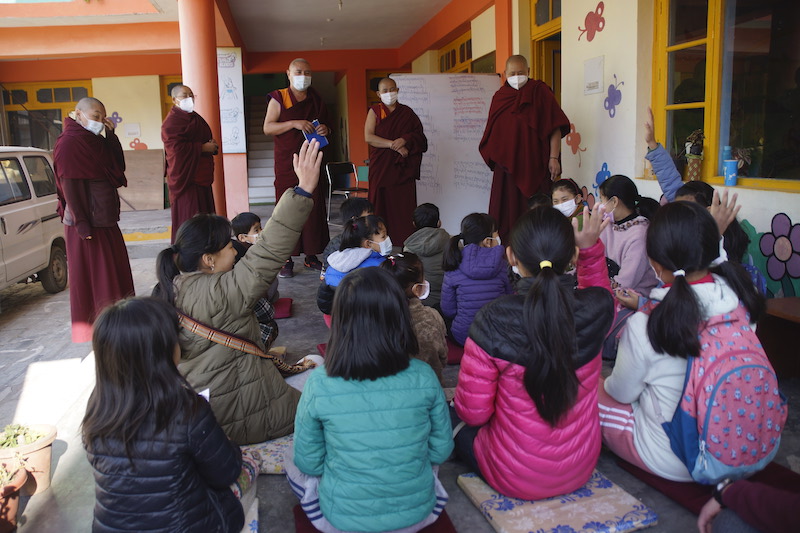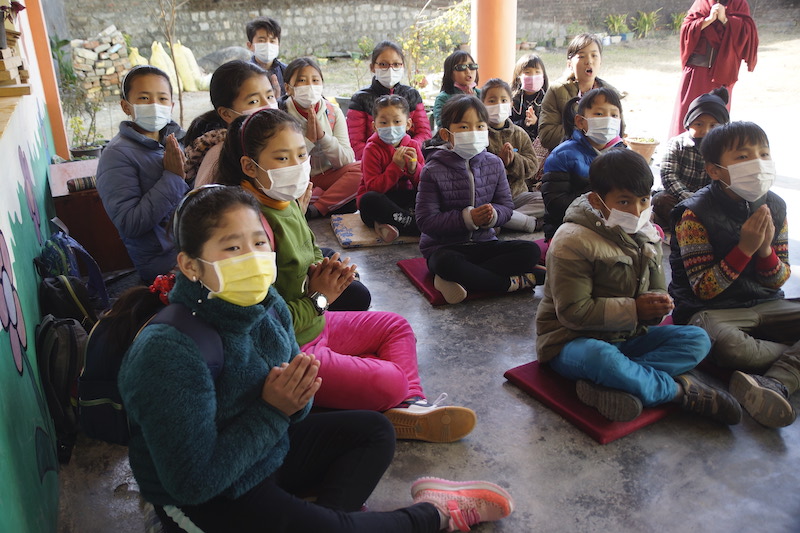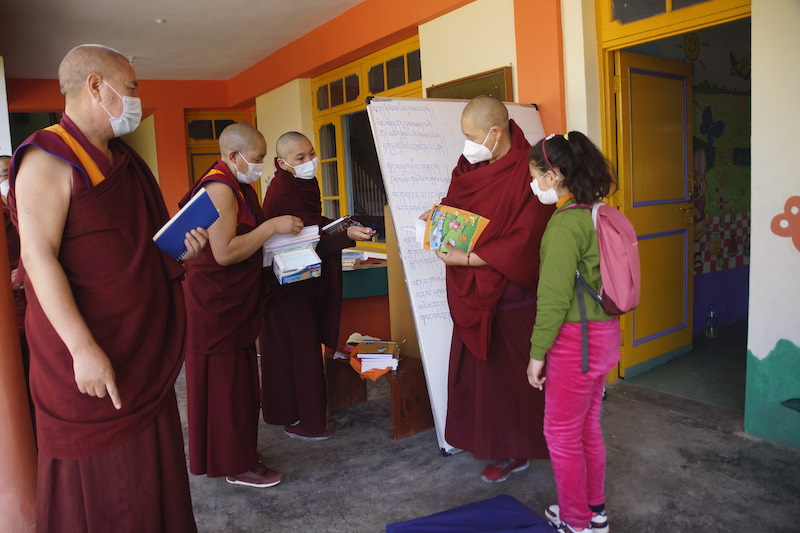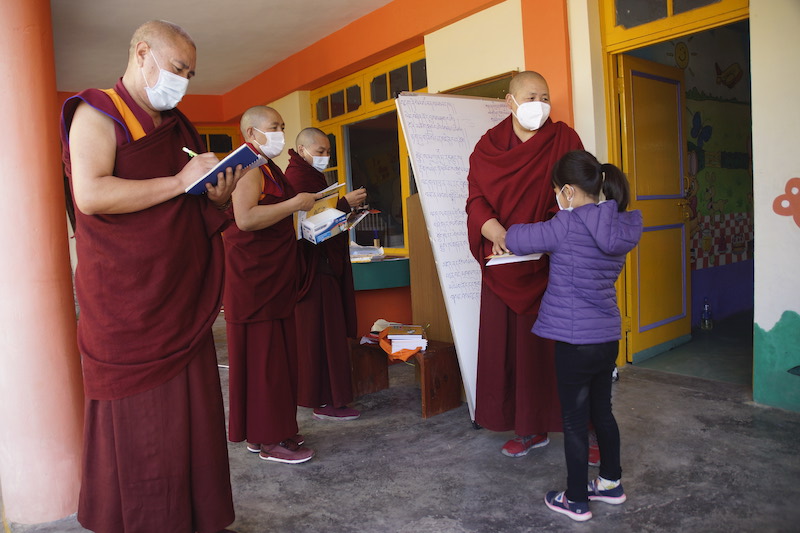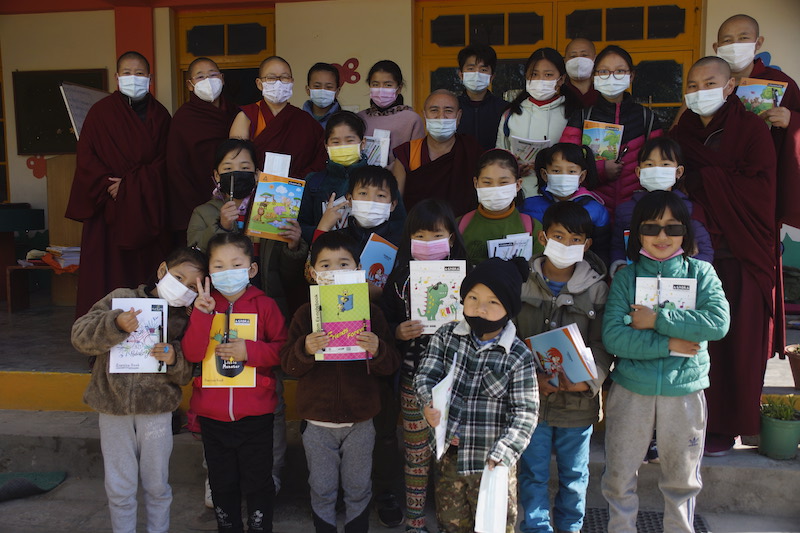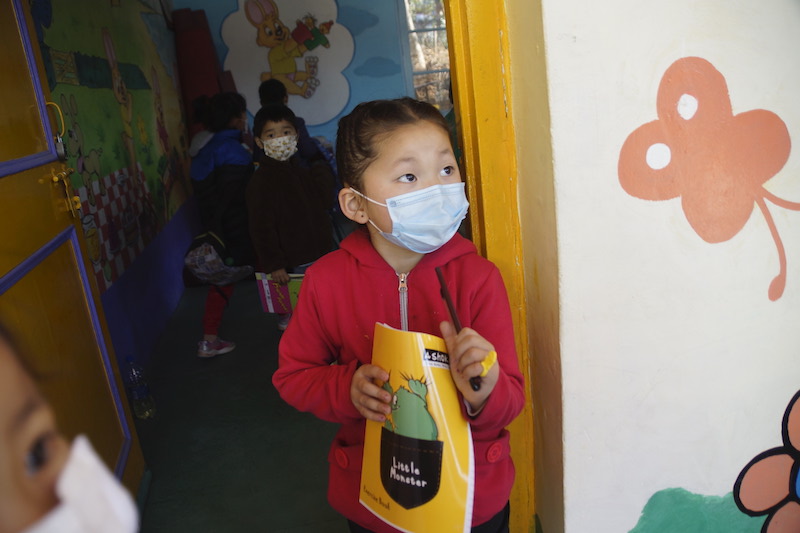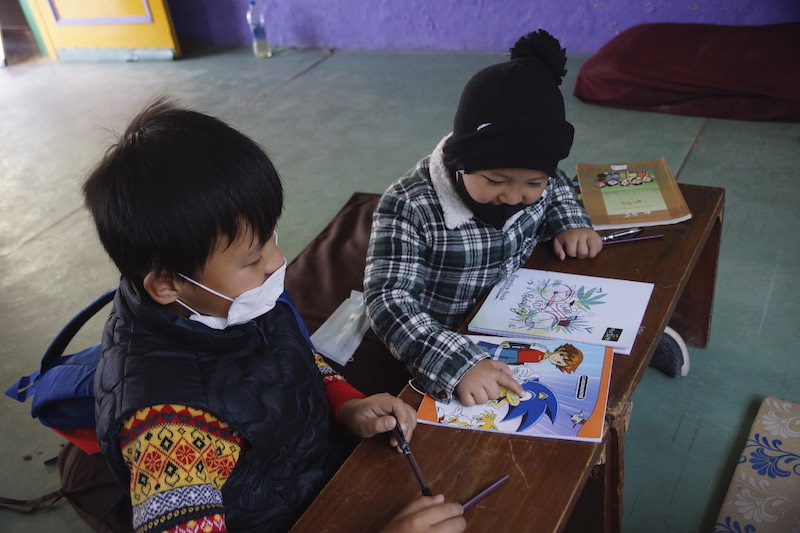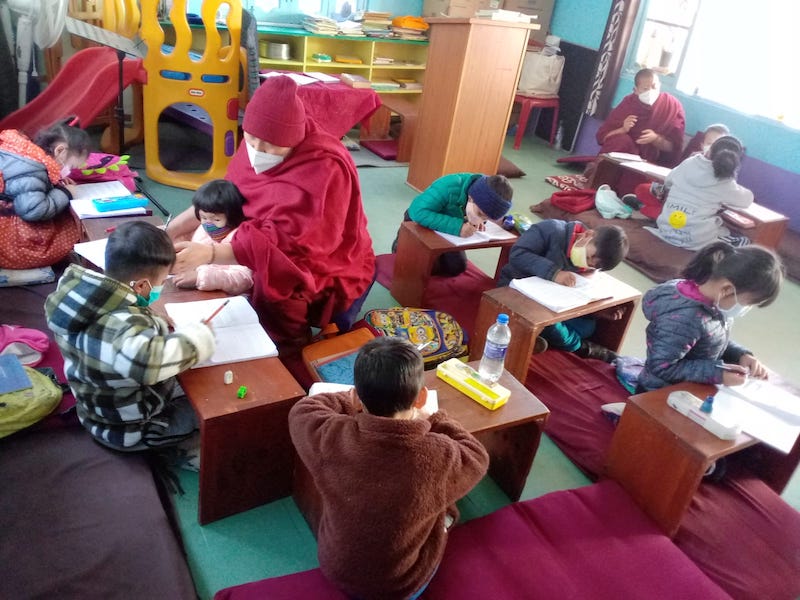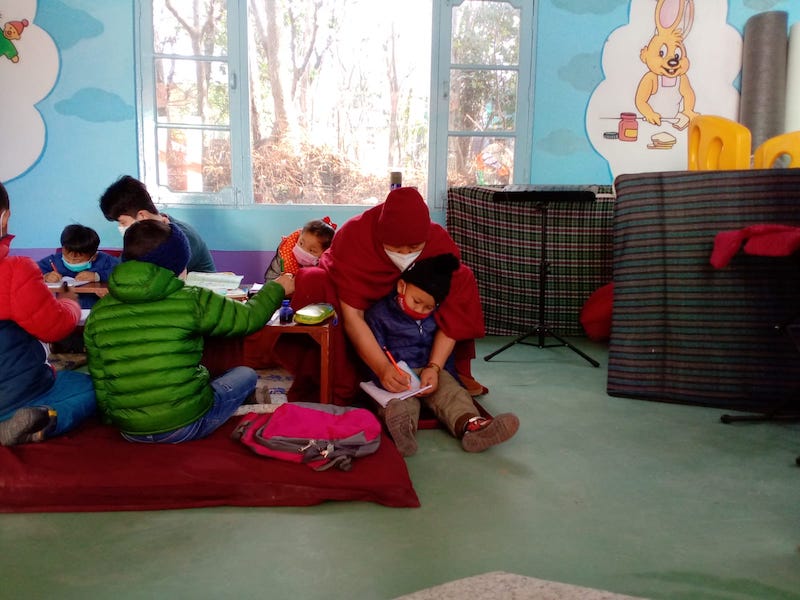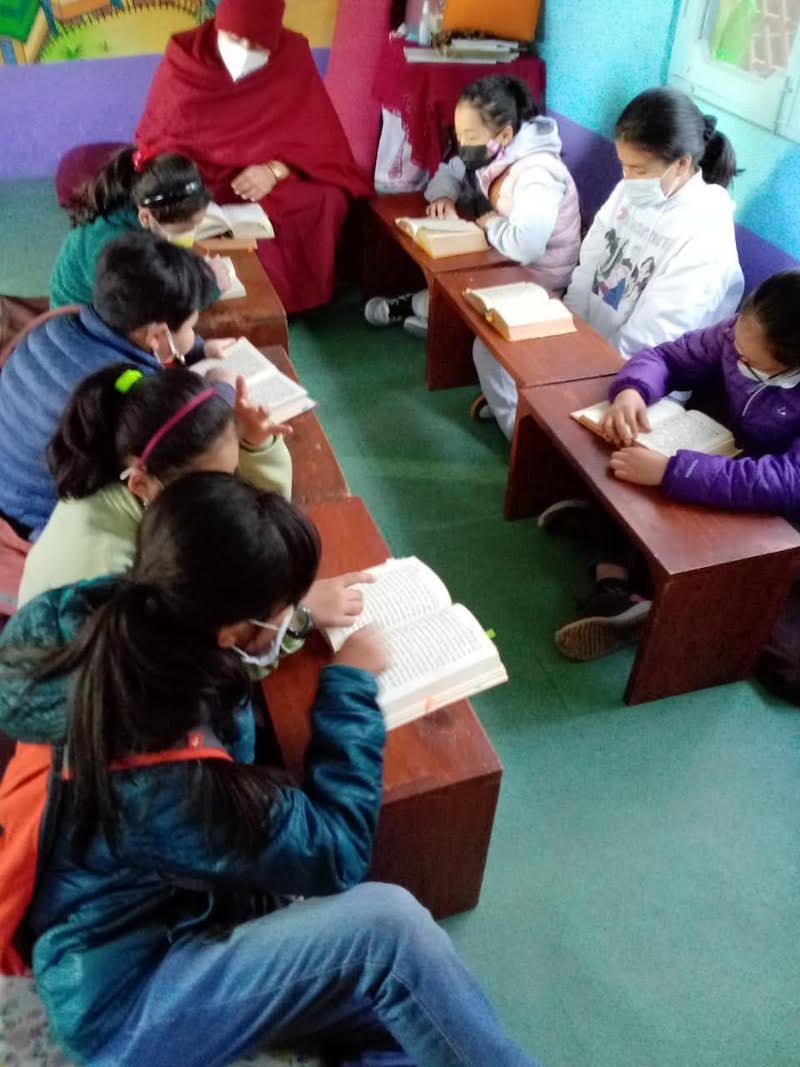Please help build 16 rooms at Dolma Ling Nunnery and Institute for nuns who hold their Geshema degree so that they can get the education they need to become fully qualified teachers of their tradition.
The Geshema degree (called a Geshe degree for men) is the highest level of training in the Gelugpa tradition and is equivalent to a PhD in Tibetan Buddhism. The degree was only formally opened to women in 2012.
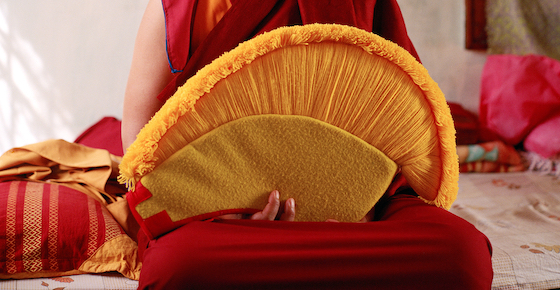
A Geshema holds the yellow hat that signifies her degree. Detail of photo by Olivier Adam.
Housing for Geshemas
There is a housing shortage for Geshemas who want to do Tantric studies. To solve this problem, we would like to construct 16 rooms plus bathrooms, kitchen and dining facilities, and a study hall. These 16 rooms and facilities will be on the third floor of the Yangchen Lophel Center at Dolma Ling Nunnery and Institute. Geshemas from nunneries all over India and Nepal will be able to stay here so that they can take the final year of advanced education at the nearby Gyuto Tantric University.
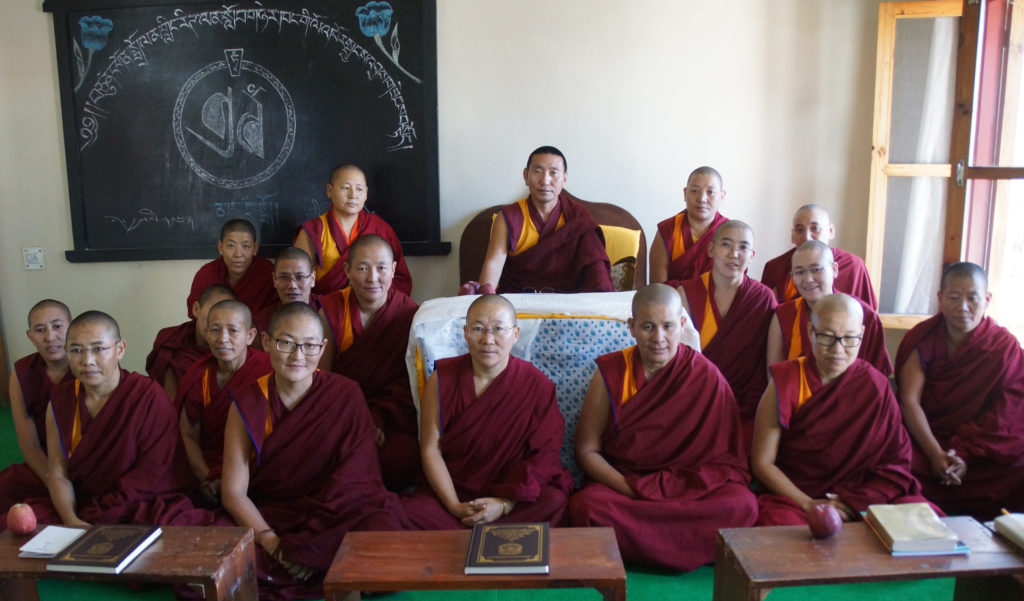
Part of the first group of 23 Geshema nuns who had the opportunity to do Buddhist Tantric Studies. Photo by the Dolma Ling Media Nuns.
The 16 rooms can either be single-bed study rooms or, as the groups of Geshema graduates become larger, accommodate two nuns per room. Now that this degree is open to women, more nuns from India and Nepal are studying to be Geshemas. It is difficult to predict how many graduates there will be each year, so the facility must be as flexible as possible. We also hope that the Geshema Organizing Committee’s office can be moved into this facility to free up the room they are now using in Dolma Ling Nunnery.
To help the Geshemas on their path you can:
- Make a gift online
- Call our office in Seattle, U.S. at 1-206-652-8901
- Mail a check to The Tibetan Nuns Project, 815 Seattle Boulevard South #418, Seattle, WA 98134 U.S. (note that it is for Housing for Geshemas)
- Donate securities
Background
December 22, 2016, marked an important day in the history of Tibet as 20 nuns became the first Tibetan women to receive their Geshema degrees, equivalent to a doctorate in Tibetan Buddhist philosophy.
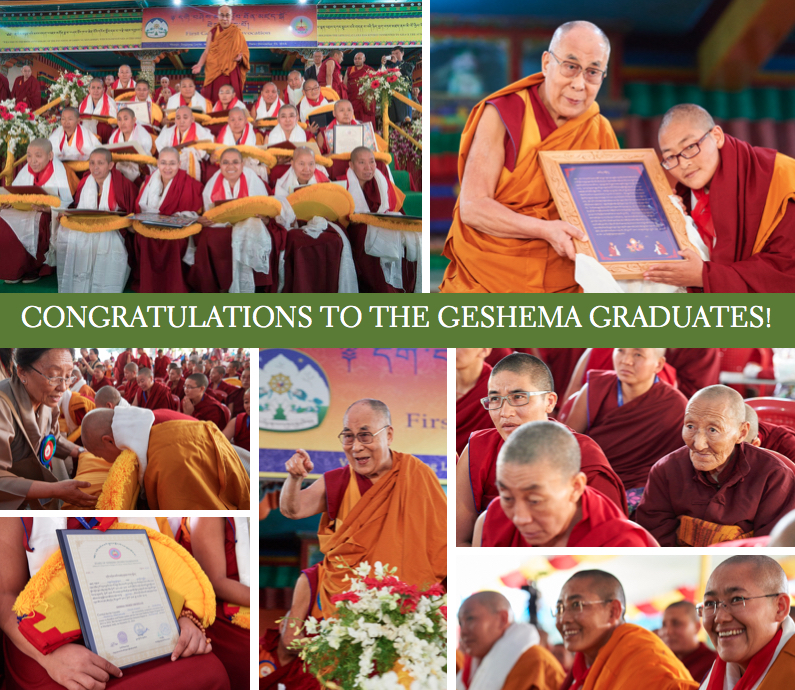
Tibetan Buddhist nuns make history. Collage of photos from the Geshema graduation event on December 22, 2016. Photos courtesy of Olivier Adam and OHHDL.
The Geshema degree was only formally opened to women in 2012. Now Geshemas are paving the way for other nuns to follow in their footsteps. This degree makes them eligible to assume various leadership roles in their monastic and lay communities reserved for degree holders and hence previously not open to women.
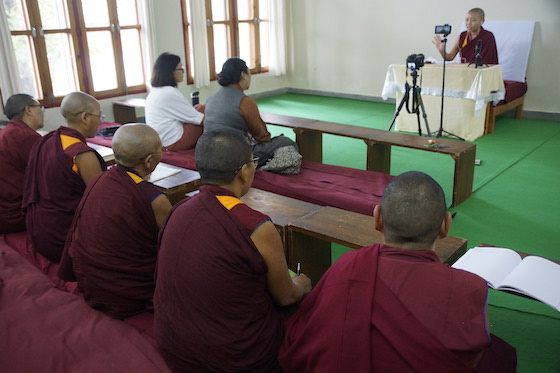
Geshema Delek Wangmo has completed her Tantric Studies and now teaches at Dolma Ling Nunnery. In May 2023, she and Geshema Tenzin Kunsel gave an online Buddhist teaching and taught other Geshemas how to do this.
Their success fulfils a longstanding wish of His Holiness the Dalai Lama and marks a new chapter in the development of education for ordained Buddhist women and is a major accomplishment for Tibetan women. It is also a milestone for the Tibetan Nuns Project, which was founded in 1987 to provide education and humanitarian aid to Tibetan Buddhist nuns living in India.
Tantric Studies
After monks attain their Geshe degree (the male equivalent of the Geshema degree) they must study the Tantric treatises to become fully qualified masters capable of teaching their complete tradition. The monks normally join one of the two main Tantric Colleges to do this.
The Tibetan Nuns Project set up a Tantric Studies program out of Dolma Ling Nunnery and Institute for all the recent Geshema grads from India and Nepal. In 2018, 23 of the 26 nuns in the first two groups of Geshema graduates started Tantric studies. The nuns attended classes at nearby Gyuto Tantric University to receive the necessary empowerments and transmissions from the senior monks. The Tantric Studies Program generally takes around 12 months to complete.
The Need for Housing for Geshemas
After monks attain their Geshe degree (the male equivalent of the Geshema degree) they must study the Tantric treatises to become fully qualified masters capable of teaching their complete tradition. To do this, the monks normally join one of the two main Tantric Colleges.
The Tibetan Nuns Project has set up a Tantric Studies program out of Dolma Ling Nunnery and Institute for all the recent Geshema grads from India and Nepal. In 2018, 23 of the 26 nuns in the first two groups of Geshema graduates started Tantric studies. The nuns attended classes at nearby Gyuto Tantric University to receive the necessary empowerments and transmissions from the senior monks. The Tantric Studies Program generally takes around 12 months to complete.
The Current Problem
Since 2018, the Geshemas have been housed and fed at Dolma Ling, traveling daily by jeep to Gyuto Tantric University for their studies. These arrangements are currently funded by the Tibetan Nuns Project under the Geshema Endowment Fund.
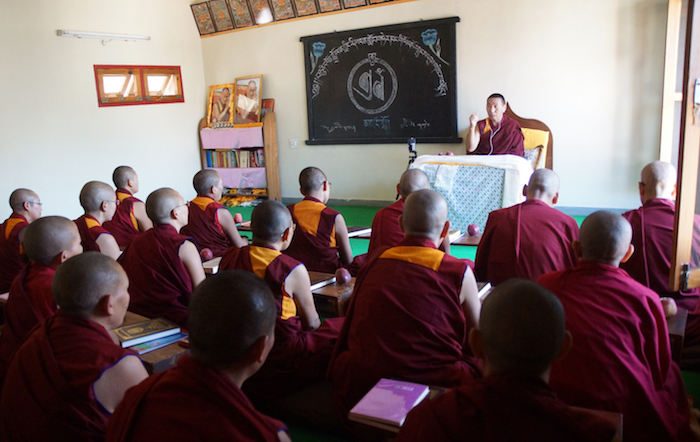
For the first time in the history of Tibet, Buddhist nuns have the opportunity to formally study Tantric Buddhism and become teachers. But they need your help to provide accommodation and food. Photo courtesy of the Dolma Ling Media Nuns.
Although there are many advantages for the Geshemas with this arrangement, it is placing a big strain on Dolma Ling to accommodate them. It also restricts the number of new nuns who can be admitted to Dolma Ling. Space must be available for young nuns to join Dolma Ling to give the nunnery fresh input each year.
